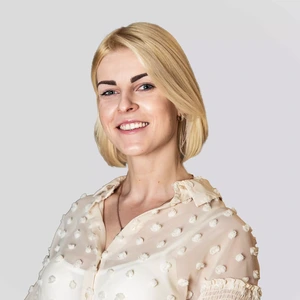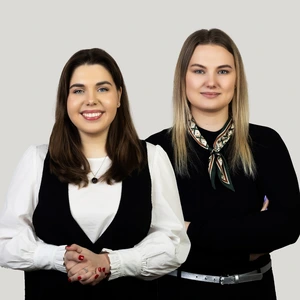The programme is only conducted in Lithuanian language. Entry requirements for this particular programme can be found in the programme description provided in Lithuanian language.
in Lithuanian
Software engineering is the systematic application of engineering methods to the development of software or software systems necessary to produce a high quality software system that meets the customer’s requirements on time. Studying Software Engineering provides you with the opportunity to develop the ability to apply software systems engineering to the development, application and maintenance of software systems for a wide range of domains. You will be able to systematically analyse, design and implement application systems, manage application systems development projects, solve relevant professional problems and conduct research.

The application of systems engineering techniques to software development is particularly relevant to the timely development of the software system that the customer needs. The relevant knowledge and skills help to avoid or manage the challenges posed by insufficiently precise and constantly changing requirements for the software system.

Students have the opportunities and resources to build their team, get free facilities and equipment, join research groups and carry out exciting projects using the Faculty’s state-of-the-art equipment.

Together with researchers from the Faculty of Informatics, real, professionally applicable final projects are developed, for which both companies and students can propose topics. The Faculty cooperates with companies such as TeleSoftas, NFQ, ATEA, ADFORM and many others.

The study curriculum can be adapted to individual needs by choosing between several study modules. There is also the possibility to choose interdisciplinary MA+ competencies.
The programme will provide you with knowledge of the application of software systems engineering to the development and maintenance of software systems for a wide range of domains. You will gain the skills to systematically analyse, design and implement application systems.
Choose a career path that focuses on developing software systems, applying engineering solutions, leading development projects and conducting research. Become an expert in your field, able to address the challenges posed by inefficiencies in the development process and its management.
Here are some of the careers you can pursue after your studies:
Analyses the requirements for an application system, designs its architecture, and coordinates the implementation, testing and deployment of the application system in a systematic way, using software systems engineering.
Systematically analyses the applicability of software systems to solve problems, applies software systems engineering, uses implementation techniques and tools, and coordinates their development and implementation.
Plans, organises, and coordinates application system development projects, ensuring their successful execution while anticipating and managing challenges arising from evolving requirements during development and implementation.
| Module name | Credits | Method of organisation |
|---|
| Advanced Machine Learning | 6 | Blended learning |
| Research Project 1 | 6 | Blended learning |
| Software Engineering Process | 6 | Distance learning |
| Software Requirements Analysis | 6 | Blended learning |
| Courses of Study Field (Competence of Expert) | 6 |
| Computational Intelligence and Decision Making | 6 | Blended learning |
| Business Process Management | 6 | Blended learning |
| Development of Challenge-Based Innovation | 3 | Blended learning |
| Optional Micro-modules | 3 | Distance learning |
| Multimedia Content Creation Methods | 6 | Blended learning |
| Modern Sensors and Systems | 6 | On-campus learning |
| Data Mining Methods | 6 | Blended learning |
| Cryptographic Systems | 6 | Blended learning |
| Studies of Modern Languages (Level A1) | 6 | On-campus learning |
| Studies of Modern Languages (Level A2) | 6 | On-campus learning |
| Studies of Modern Languages (Level B1) | 6 | On-campus learning |
| Studies of Modern Languages (Level A1) | 6 | On-campus learning |
| Studies of Modern Languages (Level A2) | 6 | On-campus learning |
| Studies of Modern Languages (Level B1) | 6 | On-campus learning |
| Studies of Modern Languages (Level A1) | 6 | On-campus learning |
| Studies of Modern Languages (Level A2) | 6 | On-campus learning |
| Studies of Modern Languages (Level B1) | 6 | On-campus learning |
| Studies of Modern Languages (Level A1) | 6 | On-campus learning |
| Studies of Modern Languages (Level A2) | 6 | On-campus learning |
| Studies of Modern Languages (Level B1) | 6 | On-campus learning |
| Studies of Modern Languages (Level A1) | 6 | On-campus learning |
| Studies of Modern Languages (Level A2) | 6 | On-campus learning |
| Studies of Modern Languages (Level B1) | 6 | On-campus learning |
| Studies of Modern Languages (Level A1) | 6 | On-campus learning |
| Studies of Modern Languages (Level A2) | 6 | On-campus learning |
| Studies of Modern Languages (Level B1) | 6 | On-campus learning |
| Business Law | 6 | Blended learning |
| Strategic Management | 6 | On-campus learning |
| Project Planning and Organisation | 6 | Blended learning |
| Studies of Modern Languages (Level C1) | 6 | On-campus learning |
| Business Regulation | 6 | Blended learning |
| Module name | Credits | Method of organisation |
|---|
| Component Based Software System Design | 6 | Blended learning |
| Methods for Software Quality Assurance | 6 | Blended learning |
| Research Project 2 | 6 | Blended learning |
| Semantic Models of Data | 6 | Blended learning |
| Courses of Study Field (Competence of Expert) | 6 |
| Quality Management | 6 | Distance learning |
| Development of Challenge-Based Innovation | 6 | Distance learning |
| Principles of Image Perception | 6 | Blended learning |
| Application of Artificial Intelligence in Robotics and their Systems Control | 6 | Blended learning |
| Multivariate Statistical Models | 6 | Blended learning |
| Data Security Technologies | 6 | Blended learning |
| Studies of Modern Languages (Level A2) | 6 | On-campus learning |
| Studies of Modern Languages (Level B1) | 6 | On-campus learning |
| Studies of Modern Languages (Level B2) | 6 | On-campus learning |
| Studies of Modern Languages (Level A2) | 6 | On-campus learning |
| Studies of Modern Languages (Level B1) | 6 | On-campus learning |
| Studies of Modern Languages (Level B2) | 6 | On-campus learning |
| Studies of Modern Languages (Level A2) | 6 | On-campus learning |
| Studies of Modern Languages (Level B1) | 6 | On-campus learning |
| Studies of Modern Languages (Level B2) | 6 | On-campus learning |
| Studies of Modern Languages (Level A2) | 6 | On-campus learning |
| Studies of Modern Languages (Level B1) | 6 | On-campus learning |
| Studies of Modern Languages (Level B2) | 6 | On-campus learning |
| Studies of Modern Languages (Level A2) | 6 | On-campus learning |
| Studies of Modern Languages (Level B1) | 6 | On-campus learning |
| Studies of Modern Languages (Level B2) | 6 | On-campus learning |
| Studies of Modern Languages (Level A2) | 6 | On-campus learning |
| Studies of Modern Languages (Level B1) | 6 | On-campus learning |
| Studies of Modern Languages (Level B2) | 6 | On-campus learning |
| Administrative Law | 6 | Blended learning |
| Management of Persons and their Groups | 6 | On-campus learning |
| Project Social and Economical Evaluation | 6 | Blended learning |
| Academic Writing | 6 | On-campus learning |
| Industrial economics | 6 | On-campus learning |
| Module name | Credits | Method of organisation |
|---|
| Management of Software Implementation | 6 | On-campus learning |
| Product Development Team Management and Decision Making | 6 | Blended learning |
| Research Project 3 | 6 | Blended learning |
| Software Engineering Management | 6 | Blended learning |
| Courses of Study Field (Competence of Expert) | 6 |
| Business Process Analytics | 6 | Blended learning |
| Optional Challenges | 6 | Distance learning |
| 3D Visualization Methods | 6 | Blended learning |
| Programmable Logical Controllers | 6 | Blended learning |
| Time Series Analysis | 6 | Blended learning |
| Blockchain Methods | 6 | On-campus learning |
| Studies of Modern Languages (Level B1) | 6 | On-campus learning |
| Studies of Modern Languages (Level B2) | 6 | On-campus learning |
| Studies of Modern Languages (Level C1) | 6 | On-campus learning |
| Studies of Modern Languages (Level B1) | 6 | On-campus learning |
| Studies of Modern Languages (Level B2) | 6 | On-campus learning |
| Studies of Modern Languages (Level C1) | 6 | On-campus learning |
| Studies of Modern Languages (Level B1) | 6 | On-campus learning |
| Studies of Modern Languages (Level B2) | 6 | On-campus learning |
| Studies of Modern Languages (Level C1) | 6 | On-campus learning |
| Studies of Modern Languages (Level B1) | 6 | On-campus learning |
| Studies of Modern Languages (Level B2) | 6 | On-campus learning |
| Studies of Modern Languages (Level C1) | 6 | On-campus learning |
| Studies of Modern Languages (Level B1) | 6 | On-campus learning |
| Studies of Modern Languages (Level B2) | 6 | On-campus learning |
| Studies of Modern Languages (Level C1) | 6 | On-campus learning |
| Studies of Modern Languages (Level B1) | 6 | On-campus learning |
| Studies of Modern Languages (Level B2) | 6 | On-campus learning |
| Studies of Modern Languages (Level C1) | 6 | On-campus learning |
| Labour Law | 6 | Blended learning |
| Business Process Management | 6 | Blended learning |
| Financial Management Decisions | 6 | Blended learning |
| Legal Regulation of Management Activities | 6 | Blended learning |
| Marketing Management | 6 | Blended learning |
| Negotiation and Conflict Management | 6 | Blended learning |
| Project Planning and Organisation | 6 | Blended learning |
| Psychology of Leadership and Management | 6 | Blended learning |
| Project Quality and Risk Management | 6 | Blended learning |
| Public Speaking | 6 | On-campus learning |
| Economical Valuation of Innovations | 6 | Blended learning |
| Module name | Credits | Method of organisation |
|---|
| Master’s Degree Final Project | 18 | Blended learning |
| Software Maintenance and Evolution | 6 | Distance learning |
| Software Security Engineering | 6 | Distance learning |
The programme is only conducted in Lithuanian language. Entry requirements for this particular programme can be found in the programme description provided in Lithuanian language.
in Lithuanian

I am currently working as a senior applications engineer and developing my competencies in technical leadership. As I progressed in my career, I found the university’s courses very relevant and the MA+ competency elective allowed gaining insights into management and leadership. Studying Software Engineering enriched my knowledge and broadened my horizons not only in software engineering but also in the surrounding fields.

A master’s degree is an important experience in my career as a programmer. During my master’s thesis, I developed my knowledge of large language models, data analysis, market research and its application. During my studies, I improved my ability to perform complex analyses on my own and to find innovative solutions in the field of software.
Software engineers are in high demand as artificial intelligence is becoming increasingly important in companies and needs to be integrated into new or existing software systems. Masters-level studies provide professionals with more practical and analytical skills. KTU stands out compared to other universities because it better prepares students for practical work, and the extra year of postgraduate study gives them an advantage when looking for a job.
All teaching, study materials and assessment activities in this programme are provided exclusively in Lithuanian.
Software Engineering graduates are most likely to work in companies that develop software and software-related projects. Their work involves not only the systematic analysis, design and implementation of applications, but also applied research. This is particularly relevant if you are pursuing an advanced degree or if you are working on innovative solutions that require in-depth knowledge.
If you are considering studying software engineering, KTU is the place to be. Here you will not only acquire the necessary knowledge, but also learn how to apply the principles of software systems engineering in practice – from development to maintenance. During your studies, you will solve real-world professional problems and your final project will be developed in collaboration with researchers from the Faculty of Informatics and IT companies such as TeleSoftas, NFQ, Atea and Adform. This is a great opportunity to learn from experienced professionals.

Talk to us, study with us:
K. Donelaičio St. 73, LT-44249 Kaunas
phone +370 679 44 555
email studijos@ktu.lt
Faculty of Informatics
XI Chamber
Studentų St. 50, LT-51368 Kaunas
email if@ktu.lt
 virtual tour
virtual tour